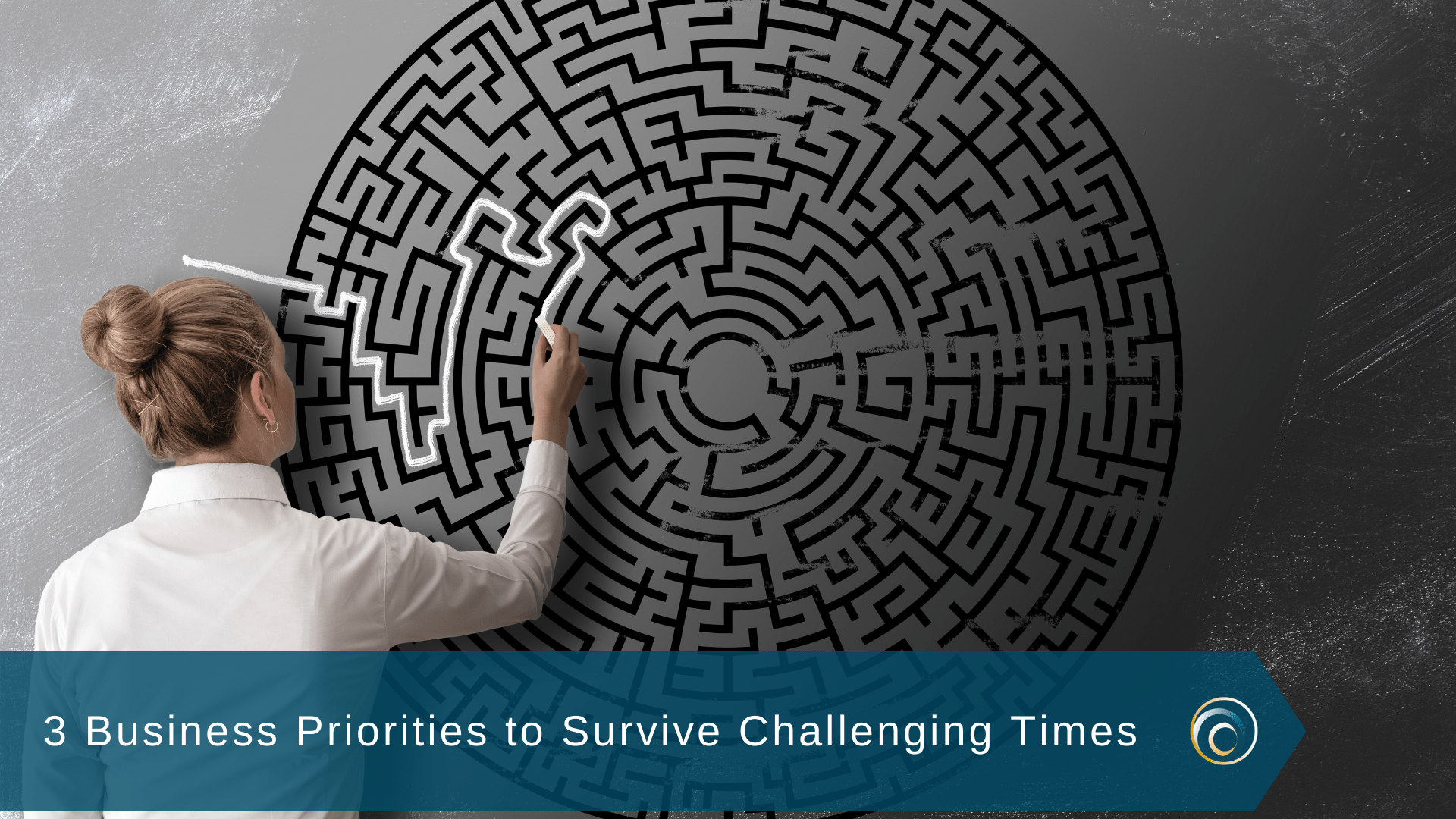
3 Business Priorities to Survive Challenging Times
by Michelle Bomberger | November 25, 2020Business owners have been doused in COVID-19 news, regulations, and challenges for most of the year. We’re not looking to rehash this year, but to plan ahead for a better year in 2021. Tucked around all the challenges we faced, there are some exceptional lessons we can learn from each other to survive challenging times. Here’s what I see from 2020 that we should carry forward:
Community.
The pandemic put a spotlight on how we come together to survive challenging times. The massive support business and community leaders are sharing with one another is inspiring. One quote that fits in well with this mentality is, “We are all in the same storm but not all in the same boat.” This is very true – while some businesses were entirely closed, others were thriving. As a member of various business circles, I saw businesses recognize their potential to help others, and many took action, even when they had little hope themselves. Examples included food services that donated to the poor, a company that loaned their extra vehicles to another business that pivoted, and companies sharing products (for free) simply to offer some joy to others. We desperately needed this, found it in our community, and changed for the better because of it.
Disaster Planning.
Most small businesses do not have a formal disaster recovery or business continuity plan. The “plan” is hoping insurance policies cover the disaster, but this isn’t nearly enough. When the first lockdown occurred, most businesses assumed their insurance would step in – surely this is a covered casualty – but virtually no policy covered the losses associated with the pandemic shutdown. The mitigation “plan” was “grab your computer and work from home if you can, and we’ll figure it out from there…” For some businesses, this was seamless. For others, it was impossible. Over the past nine months, we’ve adapted to survive challenging times – permanently or temporarily – and made do. We’ve learned how much improvisation we are capable of – and now have a de facto “disaster plan,” at least concerning facilities. Businesses have learned what breaks down during chaos and will keep this in mind as we go back to “normal.”
Prioritizing People.
The past few years have focused on employee engagement and ensuring employees buy into the business’s values. Prioritizing people is a strategic business concept for retention and efficiency. This year has shown that it’s more than a business concept. People matter in your business. Employees have had an impossible burden to manage, and business leaders have seen it first-hand. Employers implemented flexible policies to help employees manage and have become more aware of employees’ personal issues that already existed below the surface. During the lockdown, businesses needed to accommodate their team members’ lives more than ever before – and in doing so, they have enabled more personal, human relationships among teams. Let’s keep that.
From my view, our community has learned a lot about how we depend on one another to survive challenging times. Before this disaster, we saw ourselves as independent, strong, and able to manage on our own. But now, we know that it doesn’t take much for the comforts of our lives to collapse and that we really need one another for survival. I hope businesses keep focus on the humanity that we’ve discovered as we transition back to “normal.”